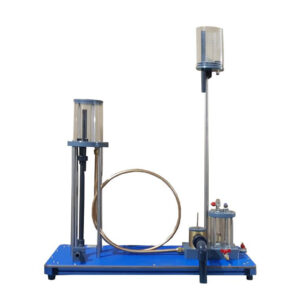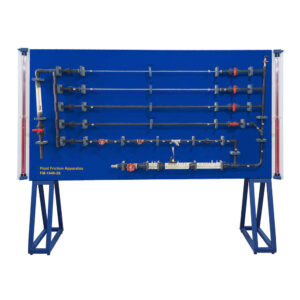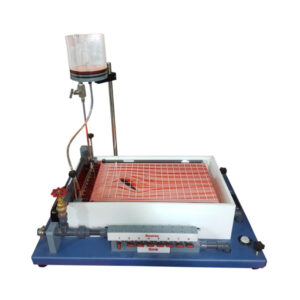Hydrostatics Bench is a self contained and mobile bench equipped with all the apparatus needed for a comprehensive range of experiments on properties of fluids and hydrostatics. A fluid is any substance which when acted upon by a shear force, however small, undergoes a continuous and unlimited deformation. If the rate of deformation is directly proportional to the magnitude of the applied force the substance is termed a Newtonian fluid and the apparatus provided here has been selected to permit the study of all the important properties of such fluids.
With this apparatus students are able to develop their knowledge of a wide range of principles and techniques that will be of lasting value to them in their studies of fluid mechanics. The equipment is entirely self-contained, mobile and independent of all laboratory services. It includes a full range of ancillary equipment required for the experiments (including a precision balance, a set of laboratory weights and a stop watch).




